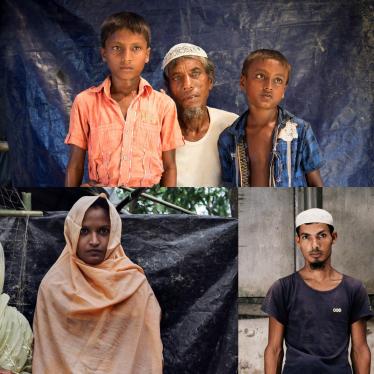(Rome) - Human Rights Watch today welcomes the new Japanese position on the establishment of an International Criminal Court (ICC). The organization called, however, for Japan to reconsider its opposition to an independent prosecutor for the ICC.
In speeches this week to more than 150 delegations meeting in Rome, the Japanese delegation announced that, after a "major review"of its positions on the proposed court, Japan was revising its position on the most contentious and important issue to be decided at the conference: the question of "state consent," or whether individual governments will have to give their permission before an investigation can go forward. Japan's new position - similar to that of the growing bloc of "like-minded"states from Europe, Latin America, Africa and Asia - is that once a state ratifies the treaty establishing the court, it accepts the court's authority to try cases involving its citizens.
The proposed ICC would have the power to investigate and prosecute future acts of genocide, crimes against humanity, and war crimes.
"Japan has an important role to play in creating this court, and its new position is bringing the world one step closer to a truly effective ICC," said Richard Dicker, who leads the ICC campaign for Human Rights Watch, an international monitoring organization based in New York. "With Japan's help, this court could end impunity for the most heinous crimes."
Japan now believes that any state which has signed the treaty ought to able refer instances of these crimes to the court for prosecution. Tokyo had earlier insisted that only states with a direct "interest" in the prosecution should be allowed to refer matters to the court.
Japan continued, however, to express its opposition to an independent prosecutor, who could begin investigations on her own initiative. A growing majority of states, including Canada, Australia and virtually all European countries, as well as key democracies such as South Korea, South Africa, Senegal, Argentina and Chile, support an independent prosecutor. The idea is opposed by a minority including Libya, Cuba, Iraq, the United States, Russia and China.
Human Rights Watch believes an independent prosecutor will reduce the likelihood of politically-motivated cases coming before the court. "A lot of crimes will go unpunished if the prosecutor has to wait for what the Security Council refers to her, or for complaints from member states." said Dicker. "If that's the case, this court won't be able to dispense real justice. Experience shows that states are very reluctant to register complaints against other states." Dicker expressed the hope that Japan's position "would evolve as the conference develops."
The ICC conference will run until July 17 and is expected to produce a statute establishing the ICC.
|
News Release
Human Rights Watch Welcomes New Japanese Position On International Court
Your tax deductible gift can help stop human rights violations and save lives around the world.
Most Viewed
-
December 15, 2024
Sudan: Fighters Rape Women and Girls, Hold Sex Slaves

-
November 8, 2017
“Everyone Blames Me”

-
March 20, 2025
Human Rights Watch declaration on prison conditions in El Salvador for the J.G.G. v. Trump case

-
December 14, 2017
“They Were Men in Uniform”

-
August 29, 2024
South Korea’s Digital Sex Crime Deepfake Crisis


